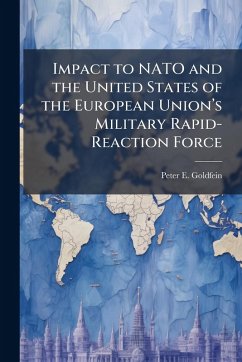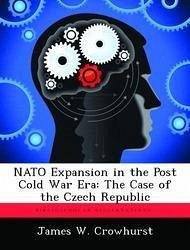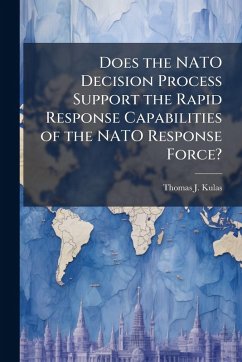
Is Membership of NATO the Best Alternative for Bulgaria's National Security?
Versandkostenfrei!
Versandfertig in über 4 Wochen
14,99 €
inkl. MwSt.

PAYBACK Punkte
7 °P sammeln!
After the collapse of Soviet Union and the disintegration of Warsaw Pact followed by basic political and social changes in Central and Eastern Europe, most of the former socialist states have remained vulnerable to aggression and coercion. Bulgaria is one of them. The Central and Eastern European region is continuing to accumulate tension and to produce threats based on ethnic and religious principles. It seems that NATO has remained the only power capable of guaranteeing peace and security in the region. It is simply impossible for Bulgaria to protect its national security and national sovere...
After the collapse of Soviet Union and the disintegration of Warsaw Pact followed by basic political and social changes in Central and Eastern Europe, most of the former socialist states have remained vulnerable to aggression and coercion. Bulgaria is one of them. The Central and Eastern European region is continuing to accumulate tension and to produce threats based on ethnic and religious principles. It seems that NATO has remained the only power capable of guaranteeing peace and security in the region. It is simply impossible for Bulgaria to protect its national security and national sovereignty alone. The most reasonable solution to the problem is joining a powerful union such as NATO. But many Bulgarians still cannot look at NATO as a friend and a protector. They still suffer from the consequences of the former ideology. For writing my paper I used different periodicals published in Bulgaria such as "Bulgarian Military Review", published by the Bulgarian Ministry of Defense and "Security Policy"-Information Bulletin of the Bulgarian Ministry of Defense. This work has been selected by scholars as being culturally important, and is part of the knowledge base of civilization as we know it. This work was reproduced from the original artifact, and remains as true to the original work as possible. Therefore, you will see the original copyright references, library stamps (as most of these works have been housed in our most important libraries around the world), and other notations in the work. This work is in the public domain in the United States of America, and possibly other nations. Within the United States, you may freely copy and distribute this work, as no entity (individual or corporate) has a copyright on the body of the work. As a reproduction of a historical artifact, this work may contain missing or blurred pages, poor pictures, errant marks, etc. Scholars believe, and we concur, that this work is important enough to be preserved, reproduced, and made generally available to the public. We appreciate your support of the preservation process, and thank you for being an important part of keeping this knowledge alive and relevant.



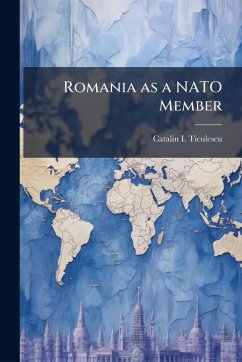

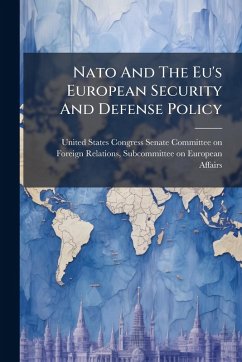
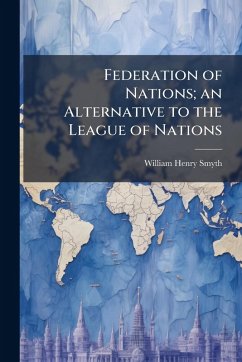
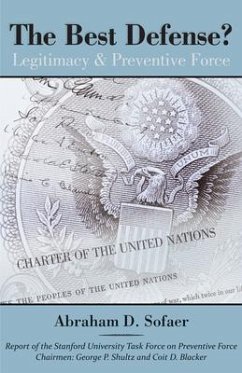
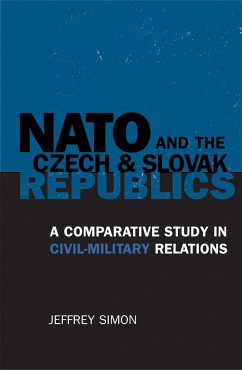
![England and Her Colonies [microform]: the Five Best Essays on Imperial Federation Submitted to the London Chamber of Commerce for Their Prize Competit Cover England and Her Colonies [microform]: the Five Best Essays on Imperial Federation Submitted to the London Chamber of Commerce for Their Prize Competit](https://bilder.buecher.de/produkte/66/66187/66187194n.jpg)
